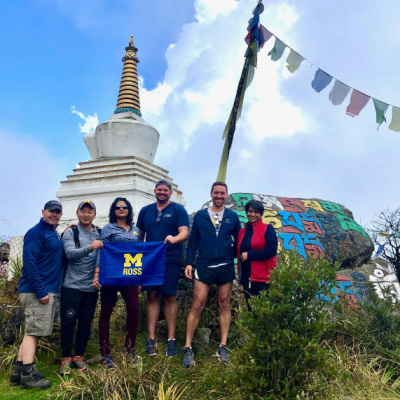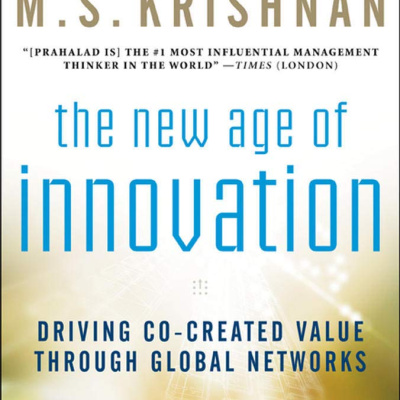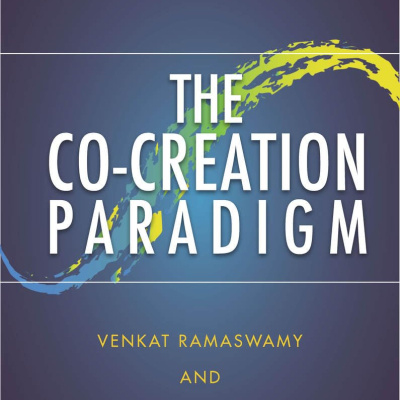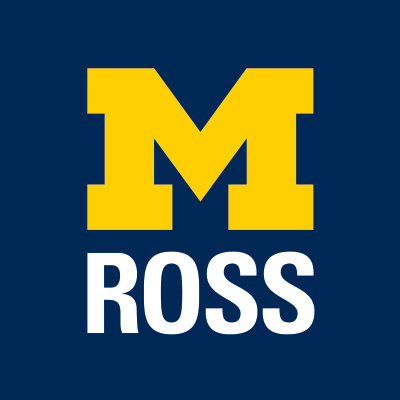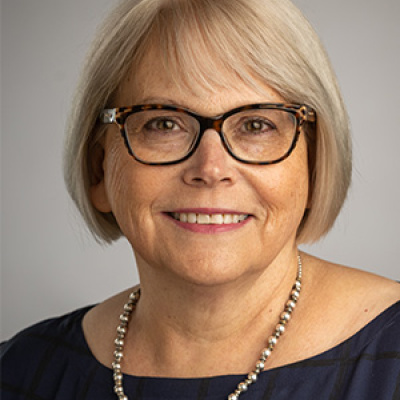Explore the faculty research, thought leadership, and groundbreaking philosophies that established Michigan Ross as one of the world’s top business schools.
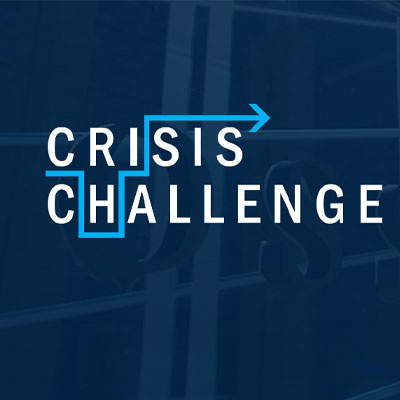
Currently organized by the Sanger Leadership Center, the Leadership Crisis Challenge partly came about based on Sue Ashford’s vision as the then head of the Ross Leadership Initiative and the enthusiasm of students wanting to create more venues to discuss complex and problematic business issues, such as the role of business in addressing society's most difficult problems and how businesses and other leaders might think about tensions between financial and environmental goals. Additionally, there was an interest in understanding how students, as future leaders, might best think about issues of corporate social responsibility. The LCC was intended to address those student interests by putting students in groups of four and asking them to exercise their courage, judgment, and integrity in response to a complex crisis situation and under strict time pressure. In the crisis challenge, students are confronted with a complex case for which there is no right answer or winning position – there are just tradeoffs. Built into the case are some of the most vexing questions of the day, including: What does a company “owe” the community in which it does business? Should the natural environment be sacrificed for shareholder wealth? Can companies admit wrongs in today’s aggressive legal climate? With the input of previous participants, the Net Impact club, and members of the faculty, a new case is prepared every year and overseen and judged by Michigan Ross community members, business leaders, and alums.
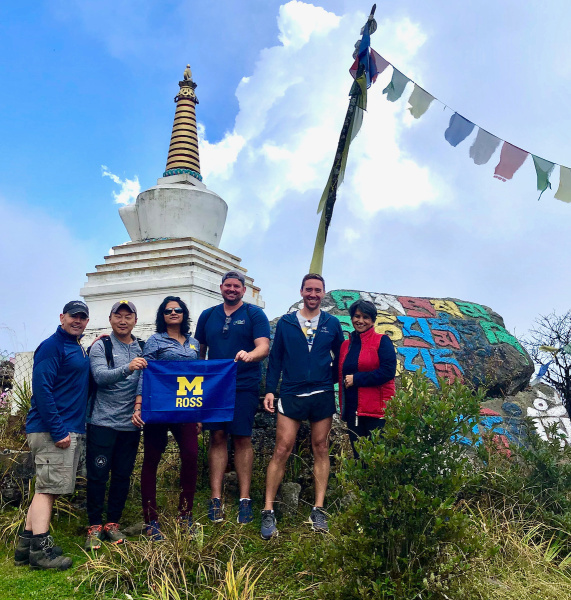
In 1991, Dean Joe White and Associate Dean Paul Danos introduced the groundbreaking Multidisciplinary Action Projects course to the MBA curriculum. The initial full-time, seven-week project established a team of MBA students to work on a real-world business challenge for a sponsor company. After a pilot run, the course became part of the MBA core curriculum in 1993. In the coming years, MAP would be added to other MBA programs and eventually to most of the school’s degree programs.
Since its inception, many other schools have incorporated project-based opportunities into their degree programs. However, Michigan Ross remains the leader in the space, and MAP has stood as a beacon of innovation and impact within the realm of graduate studies. What has truly set the MAP program apart is its unwavering commitment to bridging the gap between theory and practice. Instead of confining students to lecture halls, the program enables students to venture into the field, partnering with corporations, nonprofits, and startups to address genuine business challenges and exposing students to the intricacies of various industries while cultivating their ability to think critically, adapt swiftly, and communicate effectively.
Over the years, more than 3,200 MAP projects have been completed by Michigan Ross students. Today, more than 1,000 students participate annually in a MAP project as a required component of their degree program. The organizations they work with range from Fortune 100 multinational corporations to start-ups and non-profits, developing impactful products and addressing some of society's biggest challenges.

Professor Joel Slemrod has worked on an agenda to broaden the scope of tax analysis to address several issues that standard economics models of taxation ignore. He has written several articles analyzing and addressing the blind spots of standard economics models and has co-authored a book titled Tax Systems, which outlines the implications of these blind spots. The influence of his work is demonstrated by the recent policy attention given to tax enforcement in the United States and other countries, such as an increase in funding appropriated to the IRS to reduce evasion of high-income individuals and corporations, as well as innovative administrative policy developments through the U.S. Foreign Account Tax Compliance Act and the OECD Pillars One and Two, which subjects a group of large multinational companies to a global minimum corporate tax of 15%. Slemrod's work has received over 35,000 citations, numerous awards and accolades, and a No. 1 ranking among public finance economists per the Research Papers In Economics site.

In 1999, former Michigan Ross finance faculty member Josh Coval co-authored a paper that is among the top 50 most-cited papers in finance. The paper shows one of the most intriguing patterns in individual behavior. The strong bias in favor of domestic securities is a well-documented characteristic of international investment portfolios, yet this paper shows that the preference for investing close to home also applies to portfolios of domestic stocks. Specifically, U.S. investment managers strongly prefer locally headquartered firms, particularly small, highly leveraged firms that produce nontraded goods. These results suggest that asymmetric information between local and non-local investors may drive the preference for geographically proximate investments, and the relation between investment proximity and firm size and leverage may shed light on several well-documented asset pricing anomalies.

Professor Paul W. McCracken was part of the Michigan Ross faculty from 1948-1986. He was a prominent economist and adviser to both Republican and Democratic presidents and was also an advocate for an active government role in economic stabilization. McCracken advocated for government policies to moderate business cycles, control inflation, and address unemployment in order to assist the disadvantaged. As a result, McCracken played a central role in addressing the rising inflation of the late 1960s and early 1970s during his tenure as an economic adviser to President Richard Nixon. McCracken criticized the government for not taking sufficient measures to combat inflation, and he supported a policy of gradualism, which aimed to slow inflation by reducing economic growth slightly without causing a recession. He proposed a combination of budget surpluses and tighter monetary policy to control inflation without severely disrupting the economy. McCracken was present during the decision to unilaterally end the Bretton Woods system, which had fixed exchange rates for major currencies. This decision resulted in far-reaching changes in the international monetary system.

The late 1990s ushered in a revolutionary view across the social sciences centered around the power and importance of studying strengths, better understanding how people thrive, and how systems seize opportunities for creating excellence. Michigan Ross led the way in advancing this fundamental research shift in the field of management and organizations, with many scholars publishing seminal research in the field. In 2002, three faculty members, Jane Dutton, Bob Quinn, and Kim Cameron, founded the Center for Positive Organizations to encourage rigor in this growing field of research and to serve as a home for a large network of scholars interested in pursuing this line of inquiry. As the field has grown over the years, Positive Organizational Scholarship has influenced how management is taught and practiced. CPO at Michigan Ross is a leader in helping teachers and students tap into this body of evidence and learn about this research through innovative courses and developmental learning programs. Those tools include the "Reciprocity Ring", a dynamic group exercise that applies the “pay-it-forward” principle while creating high-quality connections, and the "Reflected Best Self Exercise", which helps you see who you are at your best to engage you to live and work from that powerful place daily.

William Davidson (1922-2009) was a successful global business leader and alum of the University of Michigan. He understood the value of the private sector to empower people around the world.
After the fall of the Berlin Wall, Davidson recognized the value of educating and empowering economic decision-makers in formerly centralized economies with the tools of commercial success. Davidson partnered with U-M to create a unique institute providing consulting and training services to nonprofits, corporations and small businesses in emerging markets with the goals of economic growth and social progress. Since 1992, the William Davidson Institute (WDI) has served as a platform to introduce students to the challenges and opportunities facing firms in low- and middle-income countries.
Over its history, the Institute has supported U-M student teams, totaling more than 1,800 students, who collaborate with business and nonprofit partners to provide analysis and develop solutions built upon the foundation of basic business principles. To ensure ongoing access to current and relevant business education, WDI Publishing also produces and distributes high-quality, cutting-edge business cases and other teaching materials, with more than 700 cases in its collection, reaching approximately 800 universities and institutions globally.
The Institute is also home to NextBillion.net, an online platform for discussing business models and innovations that address development challenges in low- and middle-income countries. The platform reaches more than 25,000 readers a month.

In 2004, Ross finance Professors M.P. Narayanan and Nejat Seyhun's research revealed that thousands of corporate executives were systematically backdating their executive option awards to pocket hundreds of thousands of dollars in extra compensation illegally. The authors’ research proved difficult to publish, however. Referees and editors refused publication because the authors were “accusing the captains of American industry of outright fraud." Eventually, following dozens of press appearances between 2004 and 2006, the attitudes changed. Soon afterward, the floodgates of civil and criminal lawsuits opened, following a Wall Street Journal story truly accusing the top executives of outright fraud. Finally, one editor relented in 2008 and the research was published as is. Subsequent investigations indeed found that many executives, in collusion with the board of directors as well as the company human resources executives, went so far as to make up fake meeting dates and fake meeting minutes and fraudulently altered corporate documents to perpetuate their fraud. Finally, the U.S. Securities and Exchange Commission changed the option award rules to end option-award backdating. Narayanan and Seyhun's research underlines the importance of good corporate governance policies in containing executives’ worst instincts and stopping them from preying on their own shareholders.
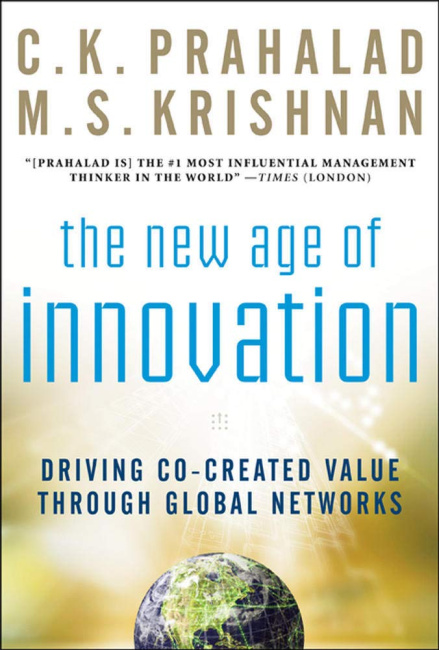
From 2000 to 2005, Professors C.K. Prahalad and M.S. Krishnan co-authored several papers on concepts related to how the emergence of digital technologies was transforming business models. From 2005 to 2008, they co-authored the book New Age of Innovation, which introduced the concept of N=1;R=G business model framework. The basic argument was that given the new capabilities emerging from digital technologies, the structure of business models was in the midst of a transformation across industries. They claimed that business models will shift from mass production of products or services to businesses co-creating personalized experiences for one customer at a time. They called this N=1 business model, i.e., businesses will operate on a sample size (N) of one. They argued that to orchestrate this personalized experience for one customer at a time, businesses will not own all resources but will connect with resource partners across the globe (Resources=Global or R=G), and these partners could be big organizations, small businesses, entrepreneurs, or even individuals. They called this business model N=1;R=G. They argued that digital technology was at the center of enabling these capabilities, and no industry will be immune to this change. They presented more than 80 examples in the book. The rest of the book was on the capabilities companies needed to build inside their organizations to compete as an N=1 business. Their primary thesis identified the significant role of software in orchestrating the personalized N=1 experience in an ecosystem of partners and the criticality of the right capabilities in the information architecture and social architecture of companies to thrive in this competition of N=1;R=G ecosystem business models.
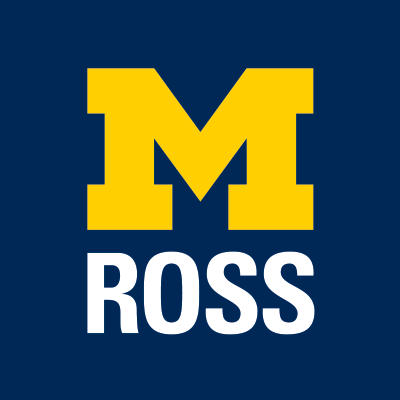
The Integrated Product Development course is a unique cross-disciplinary experiential course delivered jointly by Michigan Ross, the College of Engineering, and the Stamps School of Art and Design. The course requires teams of business, engineering, and art students to execute the full range of the product development and launch process, from early-stage ideation through design and fabrication to launch stage promotion, pricing, and inventory decisions.
It has been continuously offered for more than 30 years and has been featured on CNN and in BusinessWeek, the New York Times, and the Wall Street Journal. Professor William Lovejoy originally designed this course, but it was subsequently taught by a series of dedicated professors drawn from the three units. It remains a course students remember and refer back to throughout their professional careers.
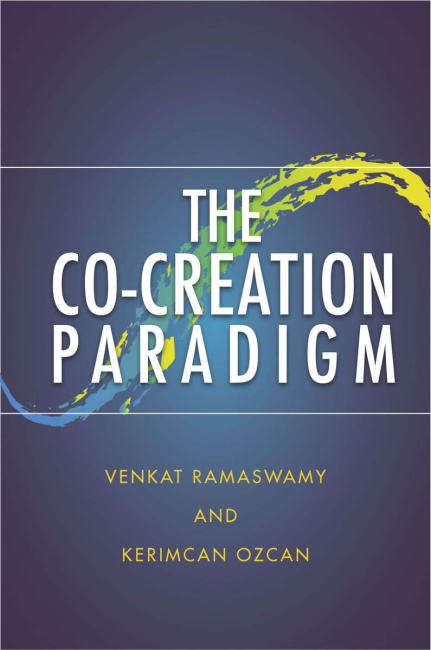
"Co-creation as a revolutionary paradigm was introduced by Professors C. K. Prahalad and Venkat Ramaswamy in a series of articles published between 2000 and 2004 and an award-winning book, The Future of Competition. Their work provided a new frame of reference for jointly creating value through networked environments of increasingly digitalized experiences, going beyond goods and services, and called for a process of co-creation -- the practice of developing offerings, experiences, and unique value through ongoing interactions with customers, employees, managers, financiers, suppliers, partners, and other stakeholders. Through their work, they envisioned an individual and experience-centric view of interactive value creation and innovation.
Starting in 2005, the explosion of digital and social media, the convergence of technologies and industries, embedded intelligence, and information technology-enabled services enabled enterprises to build platforms for large-scale, ongoing interactions among the firm, its customers, and its extended network. Ramaswamy's work argued that success lies in connecting with people's experiences to generate insights and change the nature and quality of interactions. He also called for co-creation from the inside out of enterprises and their networks, as much as co-creation from the outside in, and for leaders to co-create transformative pathways.
In 2014, Ramaswamy published "The Co-Creation Paradigm", which combined the core ideas of co-creation with a call to see, think, and act differently in an interconnected world of possibilities and complex challenges to co-create a better future as individuals."

Professor Gretchen Spreitzer received her PhD from Michigan Ross in 1992. Her work on empowerment, stemming from her Michigan Ross dissertation, has set the foundation for a new understanding of the employee experience. Instead of capital that organizations needed to control, empowerment brought forth the idea that employees thrive when they are given the freedom and autonomy to do their work autonomously. This pioneering work ushered in a new era of research and a fundamental shift in how organizations view their relationship with employees.
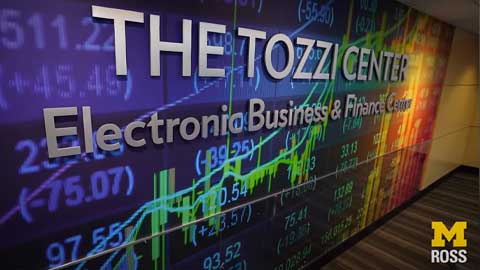
The original trading floor at the Michigan Business School was established in 1999. At the time, it was the 12th academic trading lab to be developed in the United States and one of the first in a large public university.
Later, with a generous donation by John and Georgene Tozzi, a new lab was built. Over the years, thousands of students have come through the lab.
Today, there are approximately a dozen investment clubs, seven of which meet weekly in the lab. When the lab was first getting started, the student-managed fund was at $95,000, which has since grown to $700,000.

The root of the Great Financial Crisis of 2008-2009 lay in poor-quality residential mortgage loans made by financial institutions. A set of academic research papers established that lenders made poorer quality loans when they anticipated selling the loans to investors rather than continuing to own the loans until they matured. When loans were sold, a complex securitization process led to a large distance between the originator of a mortgage and the final investor in the loans. Amit Seru, PhD '07, and co-authors established in an important series of papers that focused on 1) keeping most characteristics of loans the same, loans that were only marginally easier to securitize had significantly higher default rates than those that were marginally more difficult to securitize, 2) (in work with Professor Uday Rajan) securitized loans, the interest rate (which represents the compensation to investors for bearing the risk of default by the borrower) became an increasingly worse predictor of default in the build-up to the GFC, and 3) information passed on to investors by mortgage securitizers was limited and sometimes outright fraudulent. In another crucial strand of work, Professor Amiyatosh Purnanandam demonstrated that 1) loans held by banks on their own balance sheets had lower default rates than otherwise identical loans sold by banks to investors and 2) (in work with Taylor Begley, PhD '14, and Kuncheng Zheng, PhD '15) even with securitized loans, default rates were lower when the riskiest tranche was held by the lender rather than sold to investors. Collectively, the work done by Ross faculty and PhD alums showed that the ability to securitize mortgage loans undermined the incentives of lenders to the point that low-quality mortgage loans were made, essentially providing the dry timber that fueled the GFC.
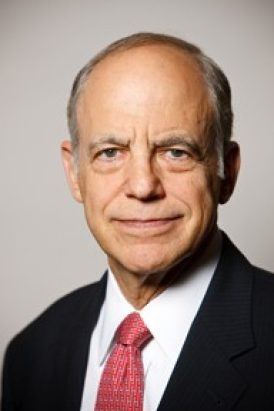
Professor Kenneth Lieberthal was a pioneer in the practice of business school professors contributing their knowledge in public service to society. Lieberthal served as the senior director for Asia for the U.S. National Security Council during the years 1998-2000.
During that same time, Lieberthal was also special assistant to President Clinton for National Security Affairs. His core academic research findings included a seminal analysis of China's bureaucratic system, which featured a nuanced and careful delineation of the fragmented nature of China's political system in the late 20th century.
Lieberthal's research was able to explain why China, during that era, had weak policy implementation at times because of the fragmentation in its bureaucratic system. He was known for introducing U.S. policymakers to a nuanced and careful understanding of the Chinese governmental system and how it functions.
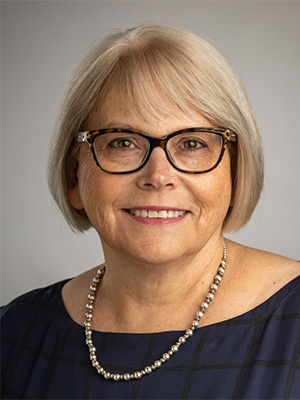
”Bifurcation of the Owner and Operator Analysis" was published by Professor Lynda Oswald in 1994. Her research was cited and quoted extensively by the U.S. Supreme Court in its unanimous decision in United States v. Bestfoods (1998) in clarifying parent corporations' direct and indirect liability for their subsidiaries’ actions in the context of CERCLA liability and hazardous waste cleanup. The liability of a parent corporation for the acts of the subsidiary is a complex issue that permeates all areas of corporate law and business relationships, and is not confined to the environmental context found in Bestfoods. Oswald’s research has since informed the decisions of over 55 additional courts -- federal trial and appellate courts as well as state appellate and supreme courts -- in business law contexts as varied as environmental liability, whistle-blowing under the Sarbanes-Oxley Act, the Racketeering-Influenced Corrupt Practices Act (RICO), employment discrimination, medical malpractice, negligence, bankruptcy, and real estate transactions.






